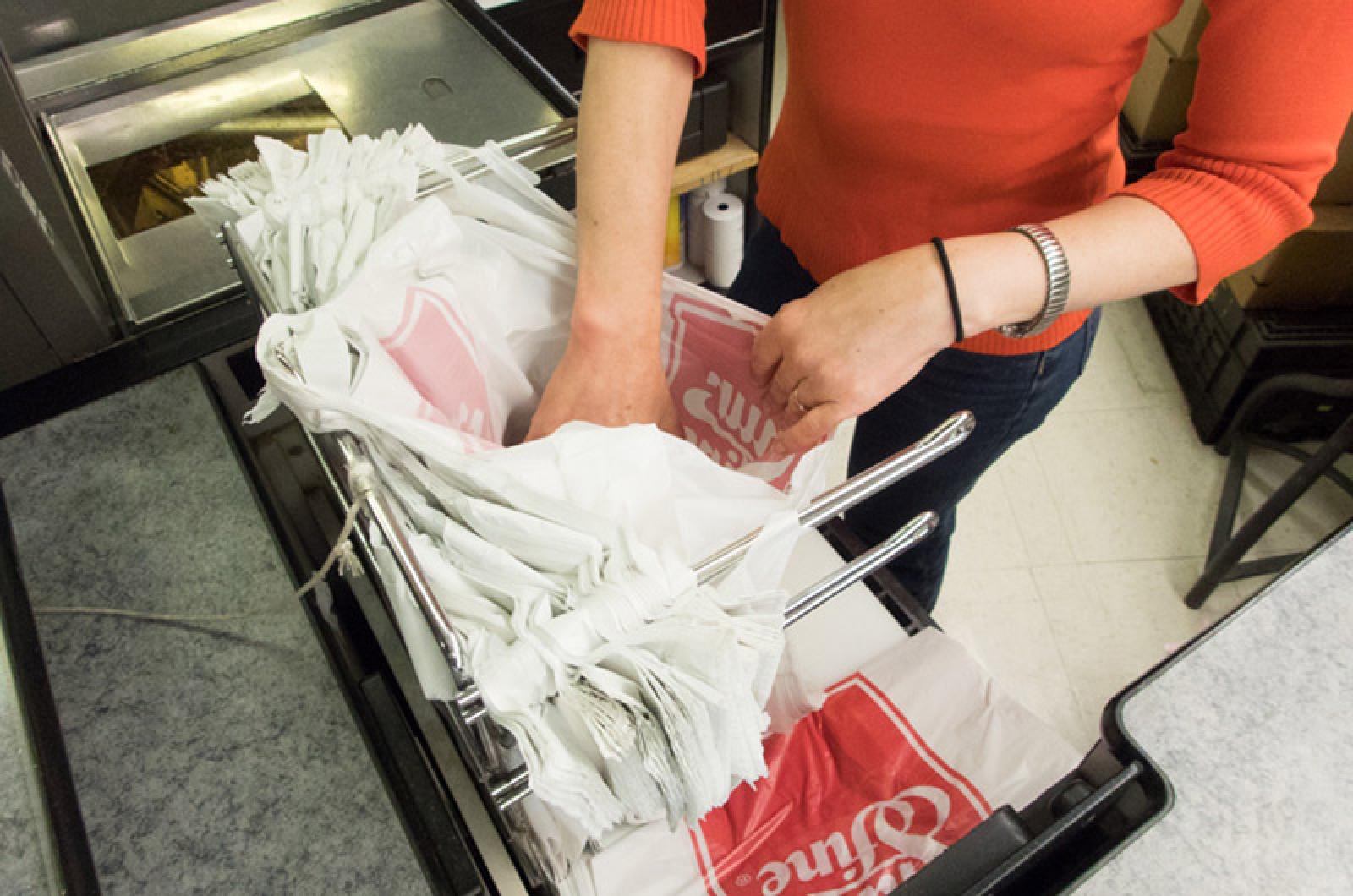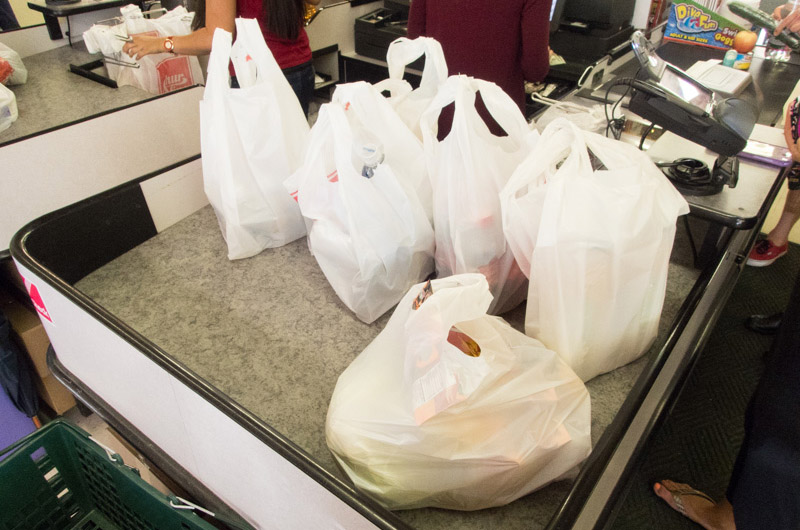Riding a wave of consumer demand, a statewide ban on single-use plastic bags has passed the state senate and is making its way through the house ways and means committee.
The sparsely-worded bill, spearheaded by Rep. Jamie Eldridge of the Middlesex and Worcester district, was added as an amendment to a $40 billion budget bill that the senate passed in May. It would apply to all businesses with more than 3,000 square feet of consumer space, or at least three locations in the state.
It’s not completely clear how the bill would affect the plastic bag bans that all but one Island town adopted this spring. Those rules apply to all businesses at the point of sale, and all plastic bags thinner than four one-thousandths of an inch, although the bags used to separate produce and other items are exempt.

Developed by the Vineyard Conservation Society with help from Island high school students, the Island bylaw passed by wide margins at town meetings in April and May. But in response to concerns from business owners, the Oak Bluffs selectmen voted in March to conduct further study before bringing the bylaw to a vote in their town.
If the state bill is approved, a number of Oak Bluffs businesses would eventually have no choice but to do away with plastic bags. The new rules would go into effect August 1, 2018.
Clint Richmond of the Massachusetts Sierra Club, which has spent years lobbying for a statewide ban and has supported the efforts on the Vineyard, said he believes if the bill passes, any weaker laws at the town level would need to be upgraded, although stronger laws could stand.
As written, the statewide ban targets slightly thinner bags than the VCS ban, making it less stringent. But unlike the VCS ban, it says reusable bags must be designed for at least 125 uses, and it requires businesses to charge at least 10 cents for reusable and recycled bags.
Many commercial buildings in Oak Bluffs have footprints of well over 3,000 square feet, including Reliable Market, potentially subjecting them to the ban. Chain stores like the Black Dog, which has many locations, could also be affected.
As of last week, the Oak Bluffs selectmen were still working to form a committee to explore alternatives to the VCS bylaw. Selectman Gail Barmakian said one approach would be to model a new bylaw after the state bill for the sake of consistency.
“I don’t think it’s going to be hard,” she said of the process going forward. “But I think it’s good we waited, in light of the state and where that’s going to go.”
VCS board member Joan Malkin said the state ban would fall short of her hopes for the Island, where concerns have focused largely on the effect of plastic bags in the ocean. “I don’t think it would be a meaningful plastic bag reduction effort for Oak Bluffs,” Mrs. Malkin told the Gazette.
VCS had originally considered waiting to see if a state ban would pass before pursuing its own plans. But outreach coordinator Samantha Look said state officials had encouraged the group to move forward. So far, 31 towns in the commonwealth have passed their own plastic bag bans (all with assistance from the Sierra Club), creating momentum behind the statewide efforts. “That may be what is helping move this along,” Ms. Look said.
Massachusetts Sierra Club director Emily Norton said the number of bans across the state has ramped up in the last year. “It looks like a domino effect, with community after community passing them,” she said. “People just don’t want toxics in the environment.”
But not everyone is excited about the prospect of a statewide ban.
The Retailers Association of Massachusetts tends to oppose all bans on consumer goods, including plastic bags. Vice president Bill Rennie told the Gazette that any statewide ban should apply equally across the board, and should not allow towns to take further action. “If we are going to have a state standard, let it be a state standard,” he said. “We think that makes more than enough sense.”
He also challenged the required fee for recycled or reusable bags, since some association members don’t want to increase costs for their customers.
Meanwhile, Rep. Lori Ehrlich of the eighth Essex district, working with the Massachusetts Food Association, has revised a separate plastic bag ban that is also under review in the house ways and means committee. But unlike the Eldridge bill, it would supersede all existing local bans. Mr. Richmond said the MFA publicly supports the bill, which has yet to pass the House or Senate. “They understand that there is a tide here in Massachusetts to get rid of these [bags],” he said of the MFA. “So they’re trying to figure out what’s the easiest way for them to adapt.”
The house is expected to vote on the Eldridge bill before the legislative session ends July 31. Mr. Richmond said he was unsure whether governor Charlie Baker could veto it at the end of the process, since it was presented as part of the budget. But he anticipated an uphill battle in the coming weeks.
“We’d like to get something done, but we don’t want a weak law,” he said. “This law is pretty good.”







Comments (3)
Comments
Comment policy »